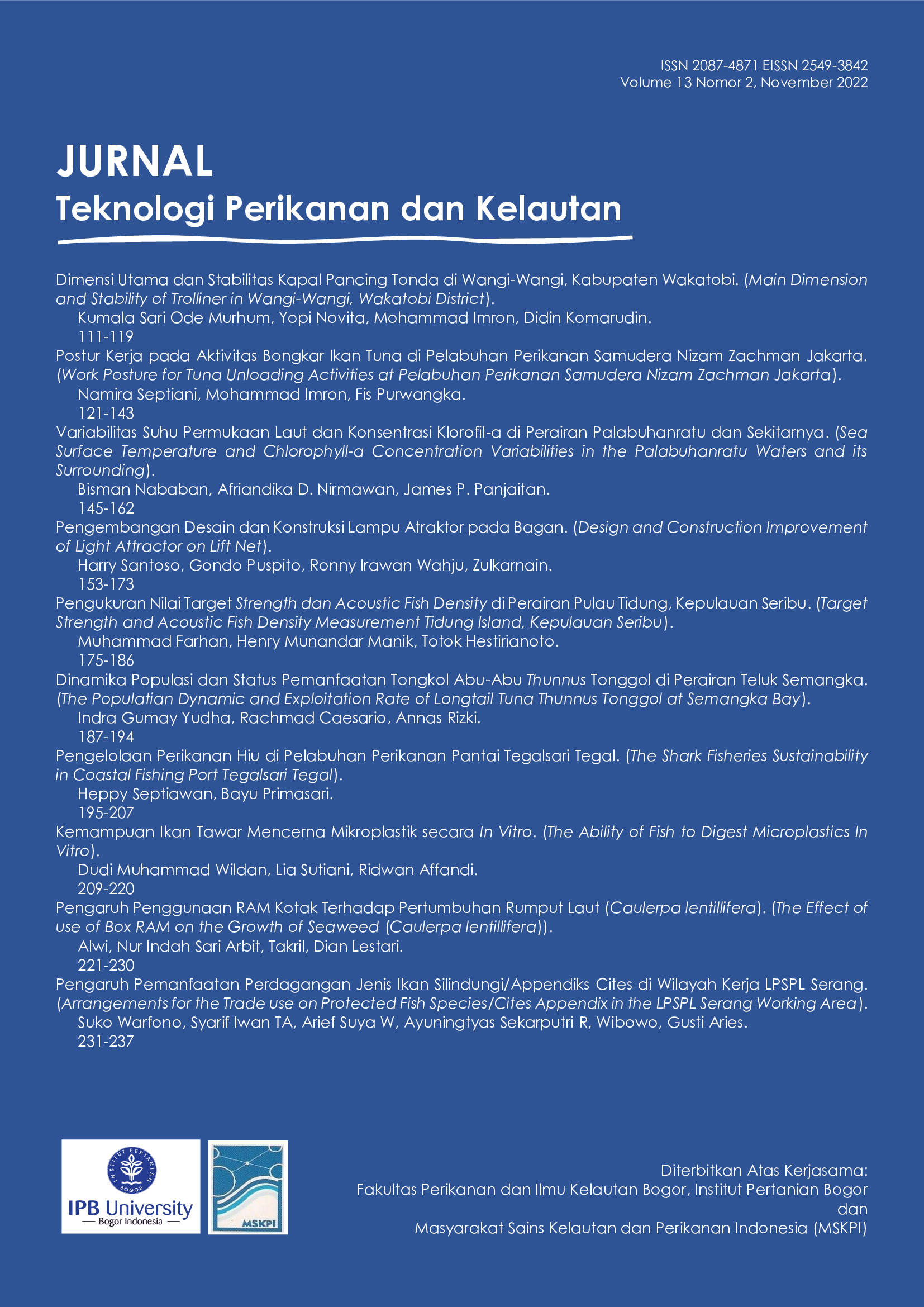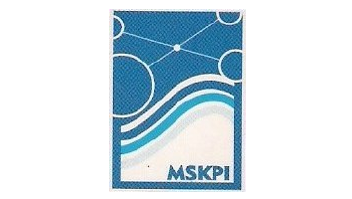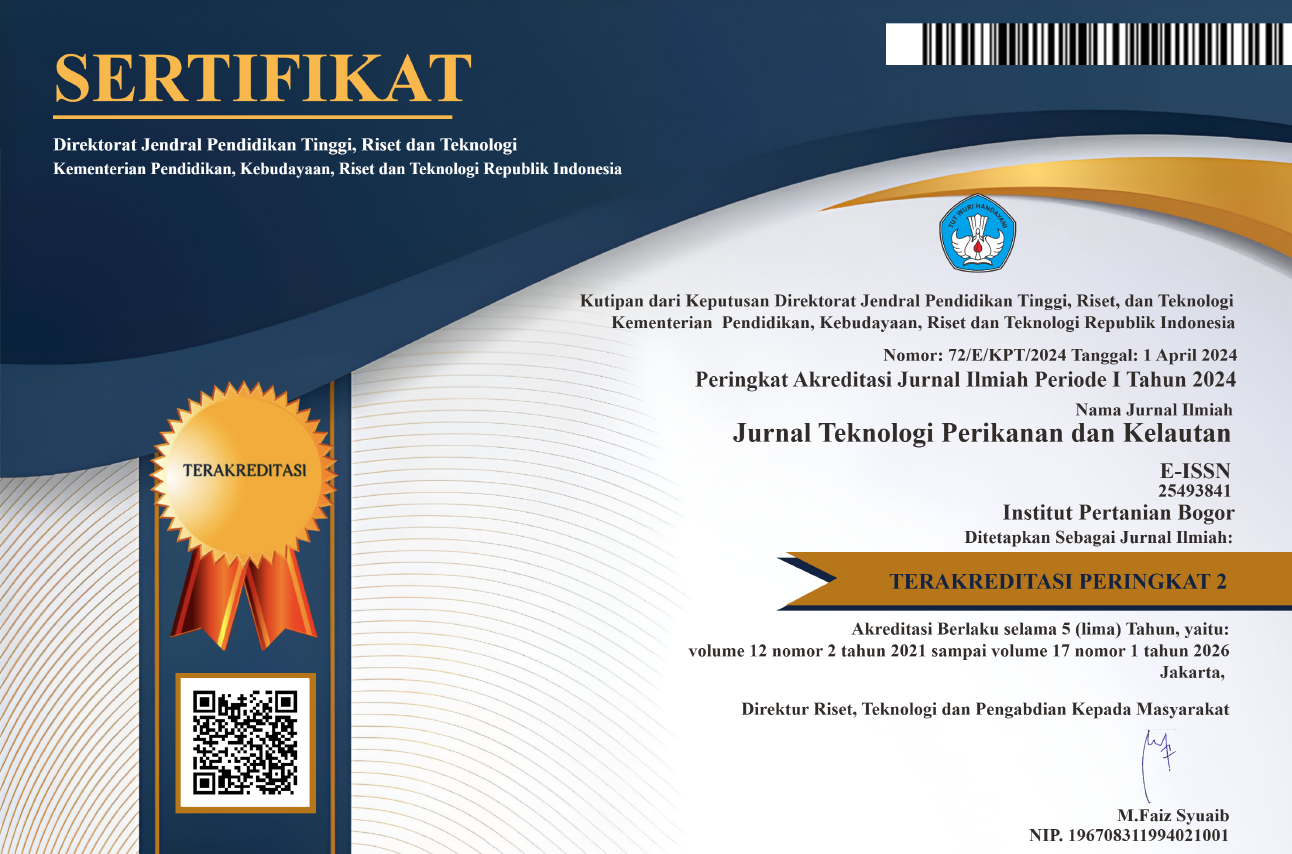KEMAMPUAN IKAN TAWAR MENCERNA MIKROPLASTIK SECARA IN VITRO
Abstract
Microplastics that pollute waters can accumulate and clog in the digestive tract of fish. It is still not well known whether microplastics can be digested by fish or not. Therefore, this research is important. The purpose of this study was to analyze the ability of digestive fluids in fish to digest microplastics in vitro. This research was conducted from January to April 2021 at the Laboratory of Aquatic Animal Physiology and Environmental Productivity (ProLing), Faculty of Fisheries and Marine Science, IPB University, Bogor. This research consisted of two stages, namely preliminary research (prelim test) and core research (core test). The parameters observed consisted of the digestive fluid performance (temperature, pH, turbidity) and microplastic conditions (size, color, and shape). The measurement results for each parameter of the digestive fluid performance of catfish (carnivore) and tilapia (omnivore) showed that there was no significant change in value for each treatment. Observation of the condition of microplastics after testing also showed no change in microplastics. This proved that in vitro fish digestive fluids were unable to digest microplastics.
Copyright (c) 2023 Jurnal Teknologi Perikanan dan Kelautan

This work is licensed under a Creative Commons Attribution-NonCommercial-ShareAlike 4.0 International License.





















